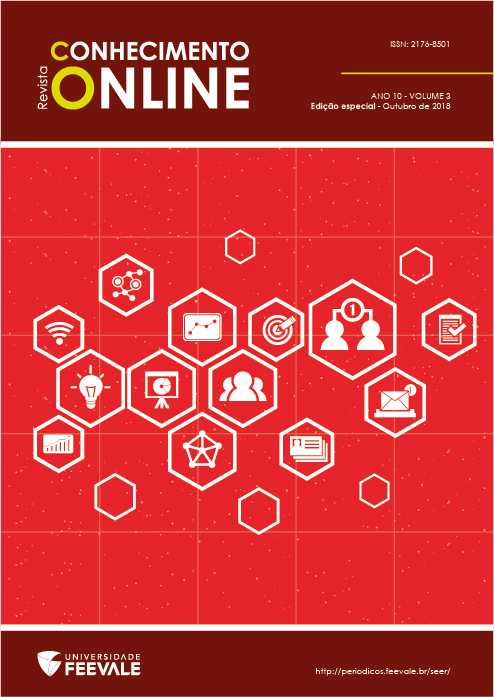NANOTECNOLOGIA: O OLHAR DA CIÊNCIA SOBRE A TOXICIDADE E OS POTENCIAIS RISCOS DESSES PRODUTOS
DOI:
https://doi.org/10.25112/rco.v3i0.1604Abstract
Produtos e aplicações com nanotecnologia emergem no mercado consumidor devido à infinita possibilidade de exploração, pela multiplicidade de usos, por serem mais eficientes e pela redução dos custos de produção. Contudo, não há informações científicas suficientes para precisar os potenciais riscos ligados ao uso de nanotecnologia para a saúde humana e o meio ambiente, gerando incertezas quanto ao seu uso. O objetivo desse estudo é observar se os artigos científicos disponibilizados na base de dados da Web of Science discutem riscos que os produtos nanoestruturados podem causar à saúde humana e ao meio ambiente. O método utilizado é o dedutivo. A técnica de pesquisa é a revisão bibliográfica realizada na base de dados da Web of Science. A análise do conteúdo é realizada pela busca isolada e do cruzamento das seguintes palavras-chaves: nanotecnologia, nanotoxicidade, risco e nanopartículas, nos idiomas inglês e português. Delimitou-se o prazo de cinco anos (2013-2017). A pesquisa observou um predomínio de trabalhos relacionados com síntese, estabilidade, características de nanopartículas e nanotecnologia. Observou-se um pequeno número de estudos que analisam a toxicidade de nanopartículas no médio e longo prazo, bem como no clico de vida desses nanomateriais, indicando que esses produtos são lançados no mercado sem as devidas pesquisas para acompanhar os riscos desta nova tecnologia que é permeada pela incerteza científica.
Palavras-chave: Nanotecnologia. Toxicidade. Risco.
ABSTRACT
Products and aplications with nanotechnology rise in the consuming market due the infinite possibilities of exploration, for the multiplicity of usages, for being more effective and the reduction in costs of production. Althoug, insuficient information is provided to determine the potential risks linked to the use of nanotechnology for human health and the enviroment, generating uncertainties regarding their use. The purpose of this study is to observe if the scientific papers available in the Web of Science database, discuss the risks of the nano-structured products to the human health and to the enviroment. The method to be utilized is a deductive approach. The reasearch technique is the bibliographic review realized in the Web of Sience database. The analysis of the matter is realized for the isolated search for the intersection of the following words: nanotechnology, nanotoxicity, risk, nanoparticles, available in English and Portuguese versions. Has been attached a five years time limit (2013-2017). The survey noted a predominance of works related to synthesis, stability, features of nanoparticles and nanotechnology. The small number of studies that analyze the toxicity of nanoparticles in medium and long terms, just as the nanomaterials life cycle, point that nanotechnology products are launched in the market without research to monitor the risks of this new technology wich is permeaded by scientific doubt.
Keywords: Nanotechnology. Toxicity. Risk.
Downloads
Published
How to Cite
Issue
Section
License
• Os autores mantêm os direitos autorais e concedem à revista o direito de primeira publicação com o trabalho licenciado sob a Licença Creative Commons - Attribution 4.0 International (CC BY 4.0).
• Os autores são estimulados a publicar e distribuir seu trabalho online (ex.: em repositórios institucionais ou na sua página pessoal), pois isso pode aumentar o impacto e a citação do trabalho publicado.


